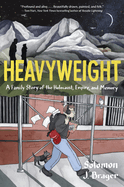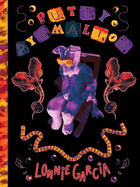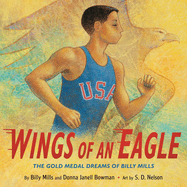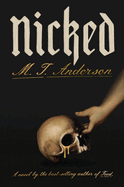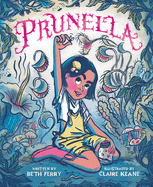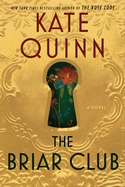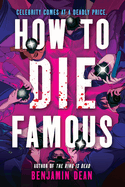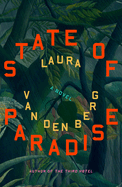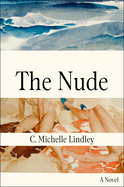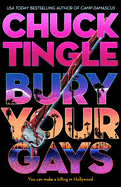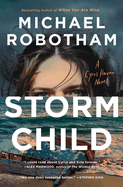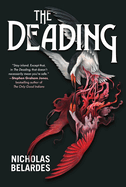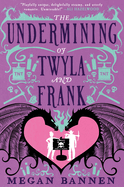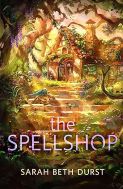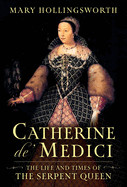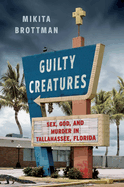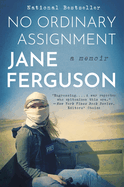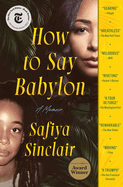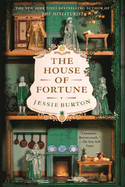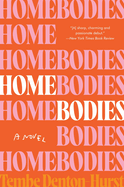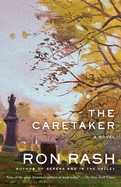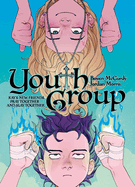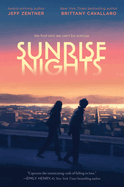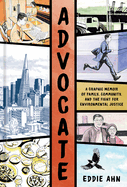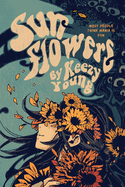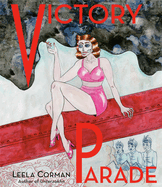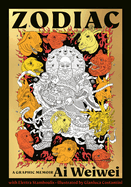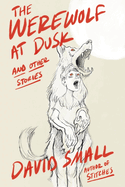Friday, July 26, 2024
In this week's issue, we've highlighted some outstanding comics and graphic novels, including Heavyweight, "the vulnerably illuminating debut memoir" by Solomon J. Brager, which ambitiously excavates personal, familial, and global histories; and Putty Pygmalion by Lonnie Garcia, a "surprisingly tender" depiction of quirky characters learning that true affection cannot be coerced. Plus, Wings of an Eagle: The Gold Medal Dreams of Billy Mills documents the Olympic gold medalist's "impassioned tale of determination and grit" in achieving greatness despite adversity, paired with "striking artwork" by S.D. Nelson; and Benjamin Dean's How to Die Famous is "a heart-palpitating thriller that effectively unveils the dangers of celebrity and fame."
And in a special feature, we take a deeper look at Comics Bearing Witness to History, drawing spectacular recommendations from manga (Japan), manhwa (Korea), and manhua (China), including Michael Nicoll Yahgulanaas's JAJ, Susumu Higa's Okinawa, and many more!
Nicked
by M.T. Anderson
The cleverness of this page-turner begins with its title, Nicked. It triples as the book's central action, the object of the theft, and the humble monk whose dream sets the chain of events in motion.
National Book Award-winning author M.T. Anderson (Feed; The Assassination of Brangwain Spurge), making his adult debut, sets the stage with eerily modern elements for this 11th-century tale set in Italy and based on true events. Invaders and a pox are rapidly spreading throughout the land, making some people gravely ill, and the rest fearful of going out. This is certainly the case in Bari, where Nicephorus serves in the Benedictine monastery.
As the novel opens, the Archbishop of Bari has instructed Nicephorus and his brothers to pray to St. Nicholas for healing and guidance. Nicephorus has a dream, and the abbot conveniently interprets the dream as the saint's wish to have his remains moved from Myra to Bari. Nicephorus thinks the abbot's made quite a leap of logic. He goes about his day and meets a Tartar named Tyun, the "saint hunter." Tyun's boasting contrasts comically with Nicephorus's compulsion for truth-telling. Soon the two form an unlikely alliance as part of the Norman-led team that attempts to reach Myra and pilfer the saint's bones.
Anderson humorously exploits the blind spots of power-hungry leaders, as well as the polar-opposite qualities of Tyun and Nicephorus amidst Nicephorus's growing attraction to Tyun. But alongside the humor and tension, Anderson plumbs questions of what constitutes as faith, and the circularity of human history. The tale ends with a delectable twist and a tantalizing possibility of further relic hunts. --Jennifer M. Brown, reviewer
Discover: NBA-winning author M.T. Anderson's humorous, suspenseful adult debut, inspired by an actual 11th-century heist of St. Nicholas's remains, deftly demonstrates the circularity of human history.
State of Paradise
by Laura van den Berg
"In Florida, nature is seductive and full of vengeance," writes Laura van den Berg in her uncanny third novel, State of Paradise, which is set soon after the onset of a Covid-like pandemic. Insecticide-resistant grasshoppers invade, carrion birds circle, lizards turn up on dogs and human heads, and scores of cats congregate in the neighborhood and in dreams. Climate and geography also play roles: sinkholes appear, torrential rainstorms batter the landscape, and the threat of climate catastrophe hangs as heavy as the humidity that blankets the region.
The unnamed narrator, a writer in her late 30s, and her husband, a history professor, are living with her bitterly divorced mother in an old house in "a small town northeast of Orlando." Living next door--despite a contentious relationship with the mother--are the narrator's sister, brother-in-law, and young niece. The sisters also have beef stemming from when the narrator was a suicidal addict in her teens and early 20s. A headset called MIND'S EYE provides an escape, first for the sister and then for the narrator. The device, ostensibly for meditation, sparks a quest involving their dead father, who tells the sister, "There is something I want you to do." Reality, already tinged with the surreal, becomes even more skewed when the sisters take a road trip to find the narrator's mysterious employer, a thriller author who relies on an army of ghostwriters. The eerie atmosphere van den Berg (The Third Hotel; I Hold a Wolf by the Ears) so masterfully delivers enhances the novel's rich psychological and familial territory. --Nina Semczuk, writer, editor, and illustrator
Discover: Laura van den Berg's third novel is an uncanny, tightly written rumination on family, climate change, writing, and reality.
The Nude
by C. Michelle Lindley
In C. Michelle Lindley's evocative debut, The Nude, a young art historian travels to an island off the coast of Greece for work only to become embroiled in a complex love affair.
In the aftermath of a devastating personal loss, a divorce, and an affair with a colleague, art historian Elizabeth Clarke finds stability in her work, despite the volatility of her boss. His treatment of her teeters precariously between mentorship and sexual harassment. Eager to prove herself worthy of a promotion, Elizabeth arrives in the Greek isles determined to acquire a subversive nude statue. But as Elizabeth gets closer to her handsome translator, his enigmatic wife, Theo, and their friends, her once-professional work trip quickly unravels into a psychological and sexual puzzle box that she can't so easily find her way out of.
Despite The Nude's thoughtful and patient deconstruction of lofty themes, its attention to Elizabeth's ever-constricting mental state gives it the propulsion of a psychological thriller. Lindley alternates between languid, sensual prose and clipped, devastating indictments, producing a brilliantly suffocating outline of Elizabeth's consciousness. Elizabeth's own process of coming undone by art, ambition, and desire in the context of a stunningly realized Mediterranean milieu recalls a kind of Highsmith-ian suspense that may surprise some readers.
In The Nude, the central crime is most literally cultural theft, and yet Elizabeth's complicity in this system both abstractly and concretely connects this offense to the gendered and geographic power dynamics that underlie it. Elizabeth may be objectified by men in the novel, but her gaze objectifies, too, leaving her wondering to what extent it's possible to "take less." --Alice Martin, freelance writer and editor
Discover: A penetrating and thrilling portrait of ambition, sexual power dynamics, and cultural theft, C. Michelle Lindley's The Nude doesn't let its readers off the hook easily.
Goodnight Tokyo
by Atsuhiro Yoshida, transl. by Haydn Trowell
Fate is a slippery character. Assuming one believes in it, fate can be the reason for either disappointment or joyous occasions. Atsuhiro Yoshida plays with this dynamic in Goodnight Tokyo, a moody ensemble piece he calls "a collection of intersecting short stories." Recurring characters in these 12 pieces create a composite portrait of the role that fate and coincidence play in everyday life. The book covers several nights in Tokyo and its environs. Among the characters are Mitsuki, a young woman who enjoys her job as a procurer for a film production company and is asked to find fresh loquats at an all-night supermarket. She calls cabdriver Matsui, who, like everyone else, is in search of something, in his case a woman he once knew.
Another passenger, Shuro, either played a detective in "a series of relatively minor B-movies" or is the actual detective whose escapades have been adapted for film. Matsui hopes Shuro can help find the woman he seeks. Yet another customer is Kanako, who works at a Consultation Room, where she answers calls from lonely souls and, in her own life, seeks the brother who disappeared 12 years earlier. Then there are the women who run an all-night diner, an actress who hates her castmates, and fantastical elements like the character who gets phone calls from an elderly gentleman who died. Yoshida overdoes the fate talk, but the novel has many pleasant episodes and keen observations, such as the way that cabdrivers, like detectives, size up clients before taking them on. The result is a haunting portrait of Tokyo life. -- Michael Magras, freelance book reviewer
Discover: Goodnight Tokyo, Atsuhiro Yoshida's collection of 12 intersecting stories all taking place in the middle of the night, highlights Tokyo residents who lead unfulfilled lives.
Mystery & Thriller
The Briar Club
by Kate Quinn
Historical novelist Kate Quinn (The Alice Network; The Huntress) stirs up a spicy, complex gumbo of female friendship, tricky gender politics, and McCarthy-era rhetoric in her taut, vivid novel The Briar Club. Quinn weaves together the narratives and secrets of a motley collection of neighbors in 1950s Washington, D.C., and draws back the (lace) curtains on their complicated lives.
Quinn begins her narrative in 1954, with a shocking double murder at the genteel boardinghouse, Briarwood House. She then flashes back four years to the arrival of Grace March, an elegant, enigmatic widow with a gift for throwing parties. As she settles into life at Briarwood House, Grace manages to charm nearly everyone, including prickly artist Reka, proper English mum Fliss, tough baseball slugger Bea, and Pete Nilsson, the landlady's lonely teenage son. Grace's Thursday night communal suppers quickly become legendary, and gradually, the residents of Briarwood House form deep bonds. But their lives--especially Grace's--all contain secrets too sensitive for public view amid rising Cold War tensions.
Through her characters, Quinn explores the racial, sexual, and ideological politics of post-World War II Washington, D.C., contrasting the residents' carefully constructed public images and the real lives behind them. The novel's twists will make readers gasp, but the cozy scenes in Grace's flat (with accompanying recipes) will leave them hankering to spend a Thursday evening with the ladies of Briarwood House. Like Grace's supper parties, The Briar Club provides a mix of zest, salt, and nourishing flavor: incisive social commentary; romance and heartbreak; ambition and professional obstacles; and a tribute to deep, unexpected friendship. --Katie Noah Gibson, blogger at Cakes, Tea and Dreams
Discover: Kate Quinn stirs up a taut, delicious narrative of female friendship, McCarthy-era rhetoric and complicated gender politics--with a side of murder.
Bury Your Gays
by Chuck Tingle
In Bury Your Gays, a chilling social horror novel by Chuck Tingle (Camp Damascus; Straight), a screenwriter whose Oscar nomination has placed him on the verge of major success now faces an ultimatum from the studio to kill off the lesbian characters in his streaming series.
As a kid, Misha never saw characters who were gay like him on television. Hints at same-sex pairings were abandoned in favor of straight love interests, or gay characters died. Now executives are asking Misha to do the same thing on the advice of "the algorithm." When he resists, characters he created for horror movies start stalking him, his boyfriend, Zeke, and his friend Tara. Misha's movies reveal his childhood emotional scars, so he must now literally conquer his demons. But he already had so much to grapple with before the monsters appeared; he's out in his personal life, but not publicly, nor to those who know him from his youth.
Tingle expertly interweaves Misha's struggles with a bitingly satirical horror plot that could not be a more timely commentary on the use of AI in film and television production, which is rendered all the more effective with a twist when it seems like Misha has won. He tops it all off with a truly chilling collection of movie monsters and some asexual representation--rare even in queer media--in the form of Tara. Whether he's working in horror or absurdist erotica, Tingle remains delightfully original in a way no algorithm could duplicate. --Kristen Allen-Vogel, information services librarian at Dayton Metro Library
Discover: A semicloseted screenwriter goes face-to-face with his own movie monsters to retain creative control in this chilling and inventive social horror novel.
Storm Child
by Michael Robotham
Forensic psychologist Cyrus Haven and Evie Cormac, his former ward, are enjoying a beach vacation when people start screaming as corpses wash ashore. Cyrus jumps into the water to rescue survivors of the boat wreck, but Evie becomes catatonic when she sees him carrying the body of a little boy. So begins Storm Child, the heartrending fourth book in Michael Robotham's superb series, which finally delves into Evie's devastating past.
Robotham introduced Evie in Good Girl, Bad Girl, the series' first book, as the child known to the public as Angel Face, whom police found hiding in the walls of a house where a man had been tortured and murdered. No one knows how she got there, including Evie, whose mind has apparently blocked out traumatic episodes. Cyrus was brought in to evaluate her at a children's home and eventually became her guardian. Now that Evie is 22, they are housemates and friends. They try to live "a normal life" together, but Evie's triggered response to the beach tragedies--which are later determined to be murder--indicate she'll have to face her past in order to move on.
Robotham handles Evie's horrific backstory with great care and insight, and he provides enough details for readers who haven't read the previous books. Evie and Cyrus, who has his own nightmarish past, remain two strong survivors who refuse to let tragedy define them. The book isn't all grim; Robotham is adept at witty descriptions, as when a man is "so boring his preferred pronouns are ho/hum." And the novel's ending is cautiously hopeful, suggesting that normality might be within grasp for Cyrus and Evie. --Elyse Dinh-McCrillis, reviewer and freelance editor at The Edit Ninja
Discover: A young woman finally confronts her traumatic past by accessing previously blocked memories in this engrossing psychological thriller.
Science Fiction & Fantasy
The Moonlight Market
by Joanne Harris
Joanne Harris's moody, evocative fairy tale, The Moonlight Market, follows a London photographer who becomes entwined with rival kingdoms of supernatural beings separated by tragedy. Tom Argent has always suspected that the world holds realities beyond what he can see--especially after his parents forbade him from reading fairy tales as a child. When Tom meets a mysterious woman named Vanessa, he finds her both dazzling and oddly familiar, though he can't always remember her face. As Tom searches for Vanessa all over London, he steps back in time, visiting the titular market and other obscure places where, he discovers, Vanessa and her compatriots are fighting a centuries-long battle with an enemy kingdom.
Harris (Chocolat; Peaches for Father Francis) weaves an atmospheric story of the Moths and the Butterflies, two kingdoms once joined when their rulers fell in love, but torn asunder when their prince--half Moth, half Butterfly--was lost. As Tom delves into the mystery of Vanessa and the complicated history between the two kingdoms, he begins to understand the ways both groups can manipulate memory. With help from the enigmatic mage known as Spider and a quick-witted Moth girl named Charissa, Tom tries to make sense of the new world he's fallen into. But his actions--even simply taking photographs--may have a bigger impact on the war's outcome than he imagines. The Moonlight Market takes readers on a haunting journey of loss, fragmented memories, and characters who will go to any (supernatural) lengths for love. --Katie Noah Gibson, blogger at Cakes, Tea and Dreams
Discover: Joanne Harris weaves a haunting, atmospheric modern fairy tale of two competing supernatural kingdoms and a photographer who gets caught between them.
The Deading
by Nicholas Belardes
Nicholas Belardes's debut novel, The Deading, is an uncannily realized dystopian horror story that follows one small, seaside town's dissolution in the face of a mysterious environmental contagion.
The first sign of trouble for the residents of Baywood is a strange snail infestation at the local oyster farm. Soon, most of Baywood--including introverted birdwatcher Blas's mother and brother--are infected with a terrifying contagion. Its victims seize and become prone, a phenomenon the local youth call "deading" after a former Internet trend. When the government quarantines the once peaceful community, it quickly unravels. Blas distances himself from his classmates as they start an extremist cult, called the Risers, who turn deading into a sacrificial religion. The Risers' use of the collective first-person plural "we" reminds readers of the intimate relationship between nature and society, the environment and humankind's collective psyches.
Escape isn't so easy in a world turned fanatical from environmental disaster. Belardes infuses The Deading with a healthy dose of grotesquerie, and he crafts a disturbing landscape of complicity and self-mutilation, of inescapable cycles of domination. But for as much brutality as exists in this dystopic Baywood, it goes hand in hand with wonder, too, often in the form of the relationship Blas has with birding, which is framed in awe. Even at the height of the novel's horror, Blas is struck momentarily still by "the collective hum of wingbeats that follow one another in what has turned to a fiery pink-and-orange dusk and rapidly descending night," and a "continuing dark spiral of wings." In this eclipse of wings, perhaps the novel's most breathless moment, Belardes finds beauty. --Alice Martin, freelance writer and editor
Discover: At once grim and gripping, horrifying and revelatory, Nicholas Belardes's eco-horror, dystopian novel The Deading conjures a world that exists as a dark mirror to the reader's own.
Romance
The Undermining of Twyla and Frank
by Megan Bannen
Longtime neighbors and best friends foil a plot and fall in love in The Undermining of Twyla and Frank, a cozy, feminist fantasy romance novel by Megan Bannen (The Undertaking of Hart and Mercy). Twyla Banneker, 53 years old, keeps busy as a Tanrian marshal and grandmother, but something is missing. After more than three decades of tending to everyone else, it's time she finally does something for herself.
When Twyla and her marshal partner, Frank, find the glitter-covered body of a dead marshal, they uncover an illegal mining operation--and a bunch of dragons long thought extinct. Frank inadvertently picks up a dragon egg and when it hatches, the adorable baby dragon imprints on him. Add in a bookish dracologist, a nervous mail-delivery hedgehog, and some bombs, and Tanria is ripe for whimsical chaos.
There's enough danger and intrigue to keep the plot moving, but the heart of this novel is Twyla's later-in-life coming of age. Determined not to be a "chair" to another man--useful and always there when wanted, but otherwise unseen--Twyla has eschewed romantic relationships since her husband died, even as she continued to cater to her adult children's wants and needs. Bannen conveys Twyla's motivations and connections so well that it's truly rewarding when she realizes that her closest friend, Frank, has loved her for years. And that she might just love him, too.
This charming, restorative romance is perfect for fans of cozy fantasy novels such as Travis Baldree's Legends & Lattes. --Suzanne Krohn, librarian and freelance reviewer
Discover: With baby dragons, whimsical secondary characters and a realistic midlife coming-of-age plot, The Undermining of Twyla and Frank will please fans of cozy romantic fantasy such as Legends & Lattes.
The Spellshop
by Sarah Beth Durst
A librarian and her sentient houseplant flee a revolution and find hope and community in Sarah Beth Durst's whimsical, cozy stand-alone fantasy novel, The Spellshop.
Blue-skinned Kiela leads a secluded life as a librarian in the Great Library of Alyssium, a vast collection that includes spell books, which are rare treasures in an empire that forbids all but the most elite from practicing magic. Then rebellion comes to the city, and the library burns. Kiela saves a few crates of spell books and Caz, the talking spider plant that serves as her assistant. They flee by library boat to the remote island of Caltrey, her long-forgotten birthplace. Kiela takes up residence in a cottage that belonged to her parents long ago and finds friends who include Bryn, an antlered woman who runs the bakery, and thoughtful, well-muscled Larran, who owns a merhorse farm. The island is in dire straits due to magical neglect by the imperial sorcerers, so Kiela secretly studies her rescued spell books and begins to revitalize the island's resources. Given the recent defenestration of the emperor, she assures Caz, "Magic belongs to the people now. I'm people." The arrival of a stranger on the island shatters her assumptions of safety and poses a threat to all that Kiela now holds dear.
Durst (The Bone Maker) shows off her background in middle-grade and young adult fiction by infusing this journey from isolation to belonging with the classic playfulness of a children's book. Kiela's growth from living a prickly and solitary existence to being able to give and receive love is sweet and inspiring. Fans of Travis Baldree should snap up this light, romantic cottagecore offering. --Jaclyn Fulwood, blogger at Infinite Reads
Discover: A librarian and her talking houseplant take refuge on a remote island in this whimsical, romantic fantasy.
Graphic Books
Heavyweight: A Family Story of the Holocaust, Empire, and Memory
by Solomon J. Brager
Historian Solomon J. Brager explores their place within a complex ancestry in the vulnerably illuminating debut memoir, Heavyweight: A Family Story of the Holocaust, Empire, and Memory. Choosing a graphic format suggests a literal piecing together of personal, familial, and global histories. The title's function is (at least) two-fold: the titular heavyweight is Brager's great-grandfather Erich Levi, a German boxing champion and Holocaust survivor; three generations later, Brager assumes the heavy weight of telling Erich's story and, consequently, their own as Erich's transgender descendent.
Brager's personal excavation began with a graduate school paper about "larger than life" Erich, whose prewar fighting career included a win against Joseph Goebbels. But "without archival evidence," the Sisyphean process of tracking Erich's experiences--from Germany to Belgium, marriage to fatherhood, imprisonment to escape, limbo in Portugal and finally U.S. immigration--becomes its own narrative of Brager interviewing extended family, accessing attic treasures and mementos, and buying government records. Unearthing their personal past forces Brager to bear witness to complicity in Europe's genocidal abuses in colonized Africa, anti-Black and anti-Romani racist propaganda, and the friction between diverse Jewish communities. No event stands alone.
Brager compiles their multigenerational testimony--"full of holes and heroic deeds"--in borderless, free-form antipanels, reflecting a fluidity to the emerging discoveries, and discrepancies. The black-and-whiteness of the pages emphasizes an unadorned bluntness. Carrying the heavy weight of inherited memories and associated trauma has been a long, difficult ordeal for Brager; perhaps this extraordinary memoir might further lighten the burden by sharing it with the waiting world. --Terry Hong
Discover: Solomon J. Brager's Heavyweight is an impressively vulnerable, multilayered memoir that's also a superb excavation of personal, familial, and global history.
Putty Pygmalion
by Lonnie Garcia
Illustrator and comics artist Lonnie Garcia shapes a surreal model of forced affection in the surprisingly tender graphic novel Putty Pygmalion.
Derryl, a lonesome vegetable wearing cat-eye glasses, fashions a floppy-eared companion he calls Peter from a children's molding substance known as Putty Pals. But as Peter gains consciousness and assesses his surroundings, he begins to understand that he's a captive in Derryl's solipsistic fantasy. It doesn't help that Putty Pals were outlawed years ago, after being abused by adults in this very manner. If the outside world were to learn of Peter's existence, it could be the end of his short life altogether.
Garcia thoughtfully develops this tension with a depth of emotional intelligence about how any lasting or meaningful relationship cannot be compulsory. For someone literally born yesterday, Peter catches onto his unnerving predicament with a scornful observation: "Grievous misuse of a kids toy, by the way." But as luck would have it, Peter makes a sensitive connection beyond Derryl's reach, which precipitates a healthy shift in both their lives.
With art that sets stylish drawings against multicolor photo-collage backdrops, Putty Pygmalion strikes an eclectic balance between nostalgic novelty and speculative dystopia, writ small. Garcia shares curiosities and insights in the back matter about the evolution his art went through as he created this book. It's a treat that he didn't keep this project all to himself. --Dave Wheeler, senior editor, Shelf Awareness
Discover: Lonnie Garcia's surprisingly tender graphic novel strikes an eclectic balance between nostalgic novelty and speculative dystopia, writ small.
Biography & Memoir
Catherine de' Medici: The Life and Times of the Serpent Queen
by Mary Hollingsworth
Renaissance historian Mary Hollingsworth's Catherine de' Medici: The Life and Times of the Serpent Queen is a captivating, peerlessly researched biography that animates the enigmatic figure of Catherine de' Medici, who has been depicted throughout history (along with other members of her family) as conniving and power hungry. Hollingsworth challenges this one-dimensional image of Medici as the titular "Serpent Queen," offering instead a nuanced and sympathetic portrait of a woman who'd been a political pawn since birth as she navigated the treacherous waters of 16th-century European politics.
Hollingsworth's depiction of Medici's life, her complicated relationship with her husband and his mistress, her unwavering devotion to family, and her tireless efforts to maintain stability in a kingdom on the brink of civil war paint a vivid picture of a multifaceted person who was far more than a mere political operative. The book is filled with fascinating perspectives and insights into Medici's life, from her childhood in Florence to her tumultuous reign as queen mother of France.
Hollingsworth presents Medici in all her intelligence, resilience, and family loyalty. Readers see her not as a coldhearted schemer but as a fiercely protective mother of her children--three of whom became kings of France--a patron of the arts, and a skilled diplomat who ceaselessly sought peace in a kingdom torn apart by religious conflict.
Although the book does not shy away from the darker aspects of Medici's life, such as her involvement in the slaughter of French Protestants in the St. Bartholomew's Day massacre, it presents a contextualized view of her actions. This is a critical resource for readers of history. --Elizabeth DeNoma, executive editor, DeNoma Literary Services, Seattle, Wash.
Discover: Historian Mary Hollingsworth has written a definitive biography of one of the most influential and complex figures of the Renaissance and the Reformation.
Social Science
Guilty Creatures: Sex, God, and Murder in Tallahassee, Florida
by Mikita Brottman
On December 16, 2000, 31-year-old real estate appraiser Mike Williams left his Tallahassee, Fla., home to go duck hunting on nearby Lake Seminole. He never returned to his wife, Denise, and daughter, Anslee, but it took nearly 17 years to uncover the shocking story behind his death and its aftermath. Mikita Brottman (The Solitary Vice, An Unexplained Death) describes a lurid tale of sexual intrigue and betrayal in a tight-knit faith community in her smart, fast-paced Guilty Creatures: Sex, God, and Murder in Tallahassee, Florida.
Mike and Denise shared a close friendship with Brian Winchester and his wife, Kathy. Both couples married in 1994, but by 1997, Denise and Brian had begun an affair. It took them three years to formulate and act on the scheme to murder Mike, and on that morning, Brian shot his close friend and buried his body miles away, where it remained undiscovered until October 2017.
Brottman, who holds a doctorate in English literature from Oxford and is trained in psychoanalysis, usefully brings these elements of her background to this project. The spirits of Dostoevsky and Poe hover over the story. Her reflections on Brian and Denise's complicated inner lives, especially when she's interrogating their attempt to rationalize their deeds with their Christian faith, or examining Brian's longtime sex addiction and his painful unraveling, help shape the book's intriguingly multidimensional account. The tragic tale of a couple whose lust overpowers their inhibitions and drives them to commit a heinous crime is hardly new, but as Brottman demonstrates with freshness and verve in Guilty Creatures, that doesn't make it an any less engrossing one. --Harvey Freedenberg, freelance reviewer
Discover: A lurid tale of crime and punishment in a fundamentalist Christian community.
Now in Paperback
No Ordinary Assignment
by Jane Ferguson
Jane Ferguson's gripping memoir, No Ordinary Assignment, traces with compassion, insight, and honesty her career as a foreign correspondent. Growing up in rural Ireland during the Troubles, Ferguson was familiar with sectarian violence, but she dove into hostility in a different context after studying Arabic in Yemen and focusing her reporting on the Arabian Peninsula and East Africa. Her narrative explores the challenges of reporting from high-risk conflict (and combat) zones, often as the only woman or the only Western correspondent, alongside her inner journey of learning to believe in herself and her work.
Ferguson details her love affair with the Middle East, which began at Arabic language school in Sana'a, Yemen, in 2008 and continued with jobs in Dubai and Beirut. Her reporter's eye comes through in her prose, as she captures vignettes from the field and from her time between assignments. Her deep love for the region, and for her job, contrast sharply with the violence she has witnessed, including embedding with rebel fighters in Homs, Syria, and reporting live from protests near Cairo's Rabaa Square during the Arab Spring. She candidly shares the risks of reporting from the field, including Western networks' reluctance to send reporters into combat zones and her subsequent lack of job (or any) security. Maintaining a romantic relationship also proved difficult; Ferguson weaves in her personal journey but always comes back to her work and her love for it.
Astute, compassionate, and detailed, No Ordinary Assignment is a thoughtful eyewitness account from a reporter whose perspective is gracious and wise. --Katie Noah Gibson, blogger at Cakes, Tea and Dreams
Discover: Foreign correspondent Jane Ferguson's astute memoir provides a gripping account of her work in high-conflict zones and thoughtful reflections on her inner journey.
How to Say Babylon
by Safiya Sinclair
Poet Safiya Sinclair (Cannibal) once again dazzles readers with her memoir How to Say Babylon, flavored as much by the shimmering promise of the future as it is a backward gaze at the author's history.
The eldest of four, Sinclair was born in Montego Bay, Jamaica, and raised by Djani, a fervent Rasta musician from the countryside, and Esther, his ethereal, intelligent wife. Her parents both had "shoulder-length natty Congo Bongo dreadlocks" and started their family while living at Esther's childhood seaside home. Sinclair's father, with his magnetic personality and beautiful voice, was the troubled root of their family. He had become no different than the systemic powers that he railed against: imposing through violence and verbal abuse his own absolute rule over them, forcibly shielding them from the wiles of "Babylon"--Western society and culture--which he considered dangerous and corrupt.
Sinclair knows that if she wants to forge ahead with a life of her own making, she must first reconcile with the past, and "write the ache into something tangible." A Read with Jenna Today Show Book Club and Indie Next Pick, How to Say Babylon is also a historical drama, shedding light on the rise of an Afrocentric, decentralized Rastafari faith in a Jamaica confused about its post-colonial identity. Readers will marvel at the tenderness that defines the author's approach to her troubled childhood, and the strength with which she embraces a future certain to be gilded by the extraordinary imagery of her poetry. --Shahina Piyarali
Discover: A pulsating history of the author's Rastafari upbringing probes the wounds that formed her as well as the anti-patriarchal sensibility simmering at the emotional core of who she is today.
The House of Fortune
by Jessie Burton
Set during the winter of 1705 in the bustling port city of Amsterdam, The House of Fortune by British author and actress Jessie Burton is the captivating coming-of-age drama of Thea Brandt, a spirited Dutch-African girl longing for romance and impatient to launch her adult life while remaining shackled to her family's scandalous past. Burton's dark and opulent third novel explores the conflicting loyalties that influence Thea and threaten to undermine her ravenous desire for independence.
Thea was born out of wedlock to Dutch native Marin Brandt and her brother Johannes's African manservant, Otto. Thea never met her mother; Marin died in childbirth. Johannes, a wealthy merchant, was sentenced to death for the crime of sodomy before Thea was born, leaving his widow, Nella, to suffer the cruel rejection of Amsterdam's judgmental society and a tragic reversal in the family's fortunes.
Readers of Burton's debut, The Miniaturist, will have met Thea's family before. Familiarity with The Miniaturist, however, is not a prerequisite to enjoying The House of Fortune, a novel set 18 years later amid the faded splendor of Johannes's magnificent canal house. The estate teeters toward poverty, selling family heirlooms to make ends meet. While the adults quarrel about money and Thea's future, packages begin to arrive for the young woman from an unknown source, containing exquisitely carved miniature objects that hint at the secrets she is keeping from Otto and Nella. Burton's narrative talents shine at full brilliance in The House of Fortune, offering a heady, hypnotic immersion into Thea's world that readers will be reluctant to leave. --Shahina Piyarali, reviewer
Discover: A Dutch-African girl in 18th-century Amsterdam struggles to free herself of her family's scandalous past in this thrilling standalone companion to the bestselling novel The Miniaturist.
Homebodies
by Tembe Denton-Hurst
Tembe Denton-Hurst debuts with a novel filled with strength, emotion, and wit. Homebodies follows a Black, queer woman fighting injustice in the workplace, with a plot that compels readers to root for her to find her way. Mickey Hayward's impressive-sounding New York City writing job is all she ever wanted (on paper). But all the topics she wants to write about--her identities and culture--get shut down by her anxiety-inducing boss, Nina. Mickey muses on her beginnings at Wave magazine: "Everything was a story that would change the conversation as they now knew it. Everyone was grateful for her perspective." Now, Wave didn't want her perspective at all; even though she dreamed of someday doing more, she didn't expect to get fired.
Her new unemployment status sparks weeks on the couch, losing herself to uncertainty and doubt. Her feelings develop into rage toward the industry she continuously saw pushing Black women out, leading her to write a manifesto about the racism and sexism she faced at Wave. Mickey decides to find solace with her family at home after receiving little support from her industry friends and feeling strain in her relationship with her girlfriend, Lex. With additional identity-questioning challenges in Maryland, Mickey is even more lost.
Denton-Hurst's prose doesn't miss a beat, following Mickey's struggle to rediscover herself and what she truly wants from life and love. Her bravery and strength make her a beacon of hope for equity and inclusion in the workplace. --Clara Newton, freelance reviewer
Discover: Homebodies, a vibrant display of bravery in the face of adversity, features witty and intimate prose and illuminates the injustices Black and queer women face in the workplace.
The Caretaker
by Ron Rash
There's such a thing as being too protective of your offspring, as Ron Rash (In the Valley; Above the Waterfall; Something Rich and Strange) dramatizes with shocking clarity in The Caretaker. As in previous Rash novels, the setting is Appalachia. It's the early 1950s. Blackburn Gant, his face disfigured from polio, is the live-in caretaker for the cemetery of Blowing Rock, N.C., a job he accepted because, "[t]he dead could do nothing worse to him than the living had already done." His childhood friend Jacob Hampton is the son of a prominent local couple whose two daughters have died. When Jacob goes off to fight in the Korean War, he leaves in Blackburn's care his pregnant teenage wife, Naomi, with whom he eloped--an arrangement that prompted Jacob's parents to disinherit him.
That would be tension enough for most novels, but Rash has further complications in mind. When Naomi returns to her father's Tennessee farm, Jacob's parents receive word that their son was gravely wounded. This leads to a monstrous lie his parents hope will get Naomi and her family out of their lives. This material could have been tawdry melodrama, but Rash is a savvy writer who delves deeply into each character's motivations, and he turns a simple tale of grief and prejudice into a complex and satisfying read. The ending is too pat, but the journey leading to it is a marvel of concision and empathy. The Caretaker is another memorable work from a bard of the American South. --Michael Magras, freelance book reviewer
Discover: Ron Rash paints a devastating portrait of grief and resentment in the tale of a North Carolina cemetery worker, and the lengths to which one family will go to protect its reputation.
Children's & Young Adult
Wings of an Eagle: The Gold Medal Dreams of Billy Mills
by Billy Mills and Donna Janell Bowman, illus. by S.D. Nelson
Olympic gold medalist Billy Mills shares his inspiring story of overcoming extreme adversity to achieve his goals in his first children's book, Wings of an Eagle. Author Donna Janell Bowman (Step Right Up) collaborates with Mills to create a soulful narration that pairs with the striking artwork of S.D. Nelson (Crazy Horse and Custer) to deliver an impassioned tale of determination and grit.
Mills, a member of the Oglala Lakota tribe, is born into a large family and great poverty. "Love keeps us warm," though. "We are stronger together, connected by hope and culture." Mills, whose mother dies when he is nine, finds solace in running and dreams of competing in the Olympics. The athlete endures racism and fights through undiagnosed hypoglycemia to run in high school, college, and eventually as a Marine. His Olympic dreams "will not be stopped.... as if fueled by Indigenous ancestors who didn't give up when all odds were against them." This fortitude carries Mills to the 1964 Olympics, where he defies expectations, setting a new Olympic record and becoming the first American to win the 10,000-meter race in track and field.
Mills and Bowman's language is at turns inspiring and haunting. Nelson's exquisite artwork (done in liquid acrylic on Masonite panel) is reminiscent of the work of Raúl Colón, in that his creamy colors blend and mix, creating illustrations that seem to have been dipped in light. Extensive back matter includes more about Mills, as well as an explanation of Nelson's "contemporary interpretation of Lakota ledger-style artwork." The efforts of Mills, Bowman, and Nelson result in a gold medal-worthy picture book. --Jen Forbus, freelancer
Discover: The first American to win the 10,000-meter race in the Olympics tells his life story in this inspiring, exquisitely illustrated picture book.
Prunella
by Beth Ferry, illus. by Claire Keane
A young gardener has a distinct talent for macabre plants but struggles to find peer acceptance in Prunella, a ghoulishly goodhearted picture book by Beth Ferry (Swashby and the Sea), illustrated by Claire Keane (I Want 100 Dogs).
Prunella's green-thumbed master gardener parents stare at each other in shock when their baby brandishes her astonishing purple thumb. Prunella grows into a gap-toothed, tawny-skinned child with a deep affinity for flora with thorns, spines, spores, or carnivorous tendencies. Her parents completely understand her passion even if they don't share it, but other children feel "nervous and nauseated" facing a garden that "pinched and poked and reeked." Prunella's attempts to share her botanical joy backfire, and she becomes "prickly" and solitary as she grows older. When an earnest, younger Black boy appears at the garden fence to ask her help with his ailing Venus flytrap, Prunella grudgingly gives advice and a handful of moss. Soon the boy is back with his budding mycologist sister, then "a whole bouquet of botanists." The adoration the younger children develop for her garden opens Prunella's heart, and a final spread shows her surrounded by the youngsters, all equally purple-thumbed thanks to a thorny blackberry bush.
Ferry's warm-voiced text is filled with botanic metaphors while Keane's dusky, blue-smudged palette strikes a tone of blooming shadows without verging too far into gloominess. Front and back matter list and describe Prunella's favorite plants, making the book a strong recommendation for any blossoming purple-thumbed readers as well as children needing reassurance that whatever they love, someone else will love it--and them--too. --Jaclyn Fulwood, youth services manager, Allen County Public Library
Discover: A young gardener who loves unusual plants finds her place in this ghoulishly goodhearted picture book.
How to Die Famous by Benjamin Dean
by Benjamin Dean
How to Die Famous by Benjamin Dean (The King Is Dead) is a heart-palpitating thriller that effectively unveils the dangers of celebrity and fame.
Abel Miller, a teenaged, mixed-race, Black-presenting British actor, has landed the role of a lifetime playing a character in the latest reboot of "one of the most cursed TV shows in Hollywood history," known for its scandalous past filled with mental breakdowns, disappearances, and deaths. What the TV executives who hired him don't know is that Abel is working with a tabloid to take down Omnificent, the show's production company, from the inside. Two years ago, his brother mysteriously died while working as a junior assistant on the show's last reboot. Omni called it a tragic accident, but Abel is convinced something more sinister happened. Abel investigates his brother's death and is soon confronted with a "web of lies that Omnificent have hidden in the dark behind a glittering disguise."
Benjamin Dean successfully uses a compelling, twisty narrative in How to Die Famous to reveal the gritty reality hiding behind the "golden sparkle" of celebrity. Strategically placed reveals and unreliable narration (alternating between Abel and his three castmates) help drive this riveting story, while vivid language makes tense scenes palpable--"the flashes from the cameras, the scream of fans... feels like water sweeping me up and then yanking me under the surface." Dean meshes these elements skillfully with examples of exploitation, unfair power dynamics, and rampant sexism, racism, and homophobia in the entertainment industry. A scintillating thriller that pulls back the curtain on Hollywood. --Lana Barnes, freelance reviewer and proofreader
Discover: In this scintillating YA thriller about the dangers of fame, a Black teen works secretly with a tabloid to take down the TV production company his brother was working for when he mysteriously died.
Youth Group
by Jordan Morris, illus. by Bowen McCurdy
A goth teen, a recovering addict, and a clean-cut youth group leader battle Hell's outcasts in Youth Group, a zany graphic novel from writer and podcaster Jordan Morris (Bubble) and cartoonist Bowen McCurdy (Specter Inspectors). The trio's madcap demon-hunting adventures transport readers to a plague of demonic possessions in the 1990s.
Cynical, angsty Kay Radford agrees, at her mother's urging, to check out the youth group at local megachurch Stone Mission Church. She can tolerate some nerdy name tags, geeky songs, and ludicrous temptation charts to make her frazzled single mom happy. The evening after a first (terrible) meeting, Kay runs into the group leaders, squeaky-clean Meg and in-recovery Cortland, performing an exorcism in the woods: "Is this some immersive theater thing to convince me not to huff paint or something?" But it's no ploy--Meg and Cortland fight lesser demons. Unfortunately for Kay, it turns out she is a "blight," a human demons cannot possess but who can grant them freedom. Now that Kay is on the demons' radar, she must join Meg, Cortland and demon fighters from several different denominations to rid the '90s of evil.
McCurdy's comic-style art is the star of this show. The book's intended audience will not be personally familiar with the 1990s, but they will be enveloped in it through McCurdy's illustrations, which perfectly depict the clothing, hairstyles, even the pagers. A couple of threads in the storyline leave unanswered questions, but the teamwork between various religious sects develops a strong and satisfying theme of unity. Youth Group should appeal to those who enjoy the fantastical and watching good combat evil. --Jen Forbus, freelancer
Discover: A teen girl must fight demons when they discover she can give them the power they seek in a darkly humorous good versus evil graphic novel.
Sunrise Nights
by Jeff Zentner and Brittany Cavallaro
In the alluring YA novel Sunrise Nights, co-authors Jeff Zentner (Goodbye Days) and Brittany Cavallaro (Hello Girls) illustrate the makings of a rocky and unconventional relationship between two teenagers who meet on the last night of an arts camp.
Harbor Arts Camp is a sleepaway art camp, and on the final night of every session, students participate in the closing tradition, Sunrise Night: from dusk to dawn, students are allowed to leave the campgrounds and wander its small, neighboring Michigan town. This is how Jude and Florence meet. Florence is a dancer who is working through her insecurities surrounding her nystagmus, a degenerative eye disease that affects her balance and causes her eyes to "shake uncontrollably." Not too long from now, the nystagmus will force her to end her dance career. Jude, a photography student, is dealing with anxiety and the divorce of his parents. Although the pair become increasingly drawn to each other as the night progresses, they decide to avoid all communication after this night and go "total silence for a year." That is, until they meet again the following summer.
Sunrise Nights is an outstanding, emotional novel that tells the story of two teenagers' uncommon route to summer love. Zentner and Cavallaro use alternating points of view, both switching between verse and short chapters of prose, to recount Florence and Jude's slow-burn romance--a romance that takes place on Sunrise Nights over the course of three successive years. Readers of Love Radio by Ebony LaDelle or camp stories of any shape will likely relish Sunrise Nights. --Natasha Harris, freelance reviewer
Discover: In this compassionate, emotional romance, two teenagers take an unconventional path to love while attending an art camp.
Comics & Graphic Novels
Comics Bear Witness to History
Comics Bear Witness to History
Once upon a time, comics weren't considered "real" literature. Eternal gratitude for breaking that literary ceiling goes to Art Spiegelman, whose Maus (Pantheon, $25) won a Pulitzer in 1992, and to Gene Luen Yang, whose American Born Chinese (First Second, $14.99) was a 2006 National Book Award finalist. Nowadays, manga (Japan), manhwa (Korea), and manhua (China) continue to dominate the graphic market, and notable titles abound!
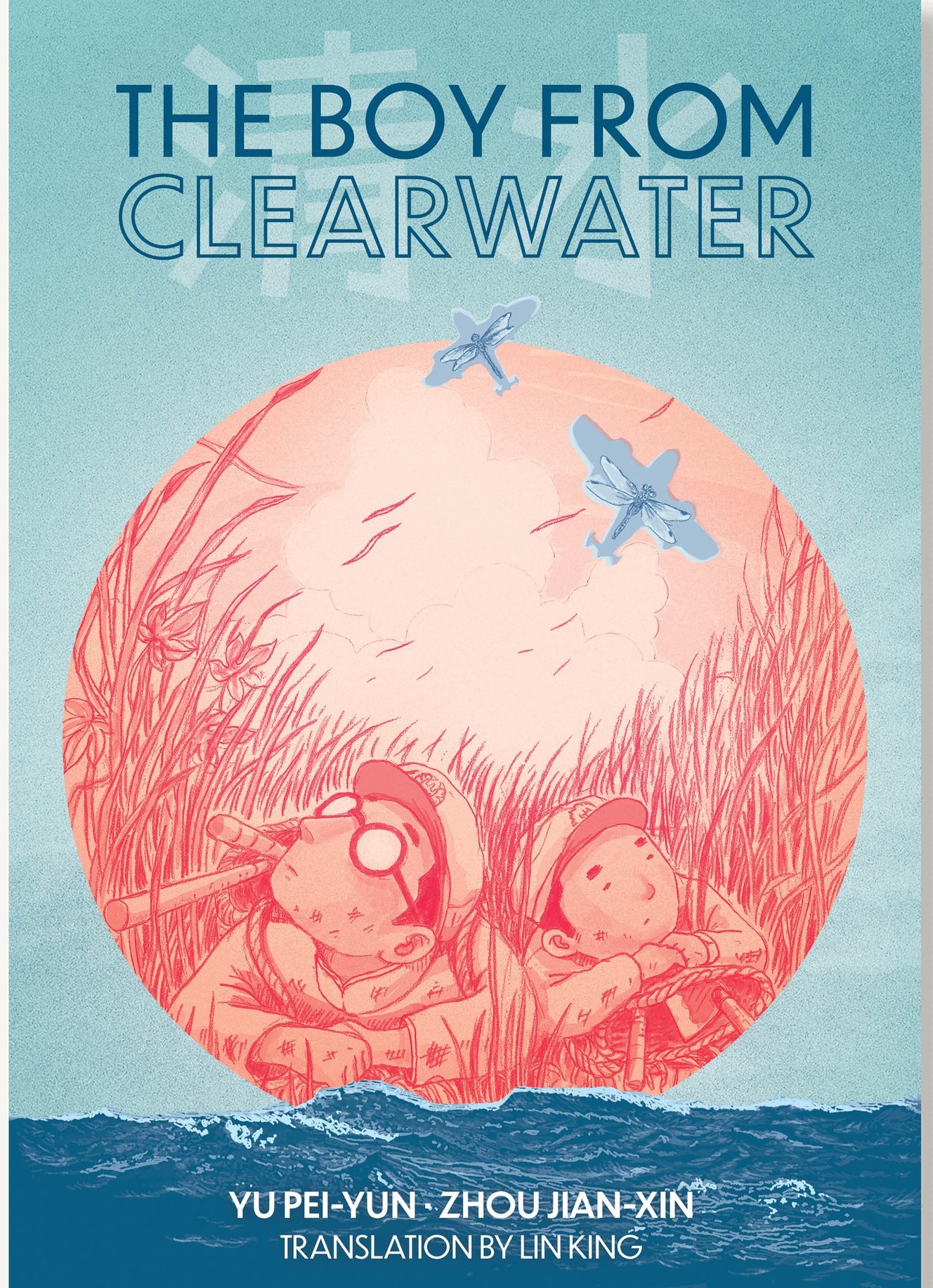 An extraordinary triumvirate--writer Pei-Yun Yu, artist Jian-Xin Zhou, and translator Lin King--present The Boy from Clearwater in two volumes (Levine Querido, $19.99 each). Exquisite art captures nonagenarian Tshua Khun-lim's remarkable life, defined by his unjust 10-year imprisonment during Taiwan's vicious White Terror (1947-1987). Book 1 consists of Part 1 (his idyllic childhood) and Part 2 (his brutal, unwarranted 10-year incarceration for joining a school book club). Book 2 collects Part 3 (his release and reentry into society) and Part 4 (another fresh start). The creative trio bears glorious witness to little-known tragic history by spotlighting an everyday superhero who survived--and thrives.
An extraordinary triumvirate--writer Pei-Yun Yu, artist Jian-Xin Zhou, and translator Lin King--present The Boy from Clearwater in two volumes (Levine Querido, $19.99 each). Exquisite art captures nonagenarian Tshua Khun-lim's remarkable life, defined by his unjust 10-year imprisonment during Taiwan's vicious White Terror (1947-1987). Book 1 consists of Part 1 (his idyllic childhood) and Part 2 (his brutal, unwarranted 10-year incarceration for joining a school book club). Book 2 collects Part 3 (his release and reentry into society) and Part 4 (another fresh start). The creative trio bears glorious witness to little-known tragic history by spotlighting an everyday superhero who survived--and thrives.
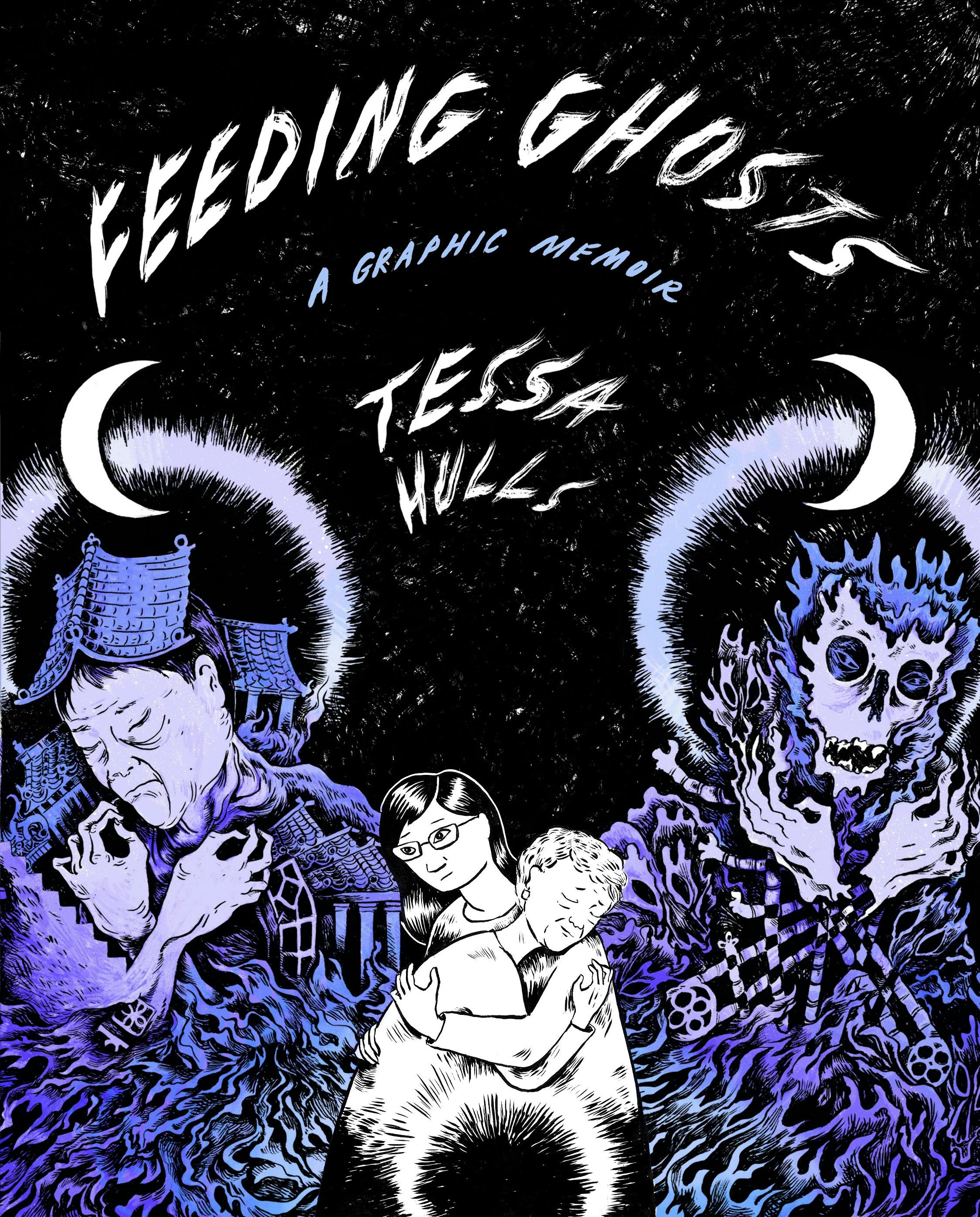 Artist/writer/adventurer Tessa Hulls presents Feeding Ghosts (MCD, $40), her complex debut memoir. Its 400 haunting, intricately drawn, densely filled black-and-white pages explore (and expose) mental illness, dysfunctional bonds, inherited trauma across three generations. In 2015, after decades of running from her "family's darkness," Hulls "embarked on an expedition into [her] family's past," set against a backdrop of Chinese history and immigrant diaspora. To understand her own story, Hulls began with "three paltry grandmother facts": "China, writer, madness." Her intimate, harrowing journey captures "three women who have crossed so many oceans, trying to carry each other home."
Artist/writer/adventurer Tessa Hulls presents Feeding Ghosts (MCD, $40), her complex debut memoir. Its 400 haunting, intricately drawn, densely filled black-and-white pages explore (and expose) mental illness, dysfunctional bonds, inherited trauma across three generations. In 2015, after decades of running from her "family's darkness," Hulls "embarked on an expedition into [her] family's past," set against a backdrop of Chinese history and immigrant diaspora. To understand her own story, Hulls began with "three paltry grandmother facts": "China, writer, madness." Her intimate, harrowing journey captures "three women who have crossed so many oceans, trying to carry each other home."
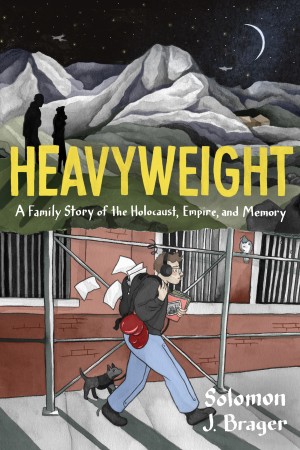
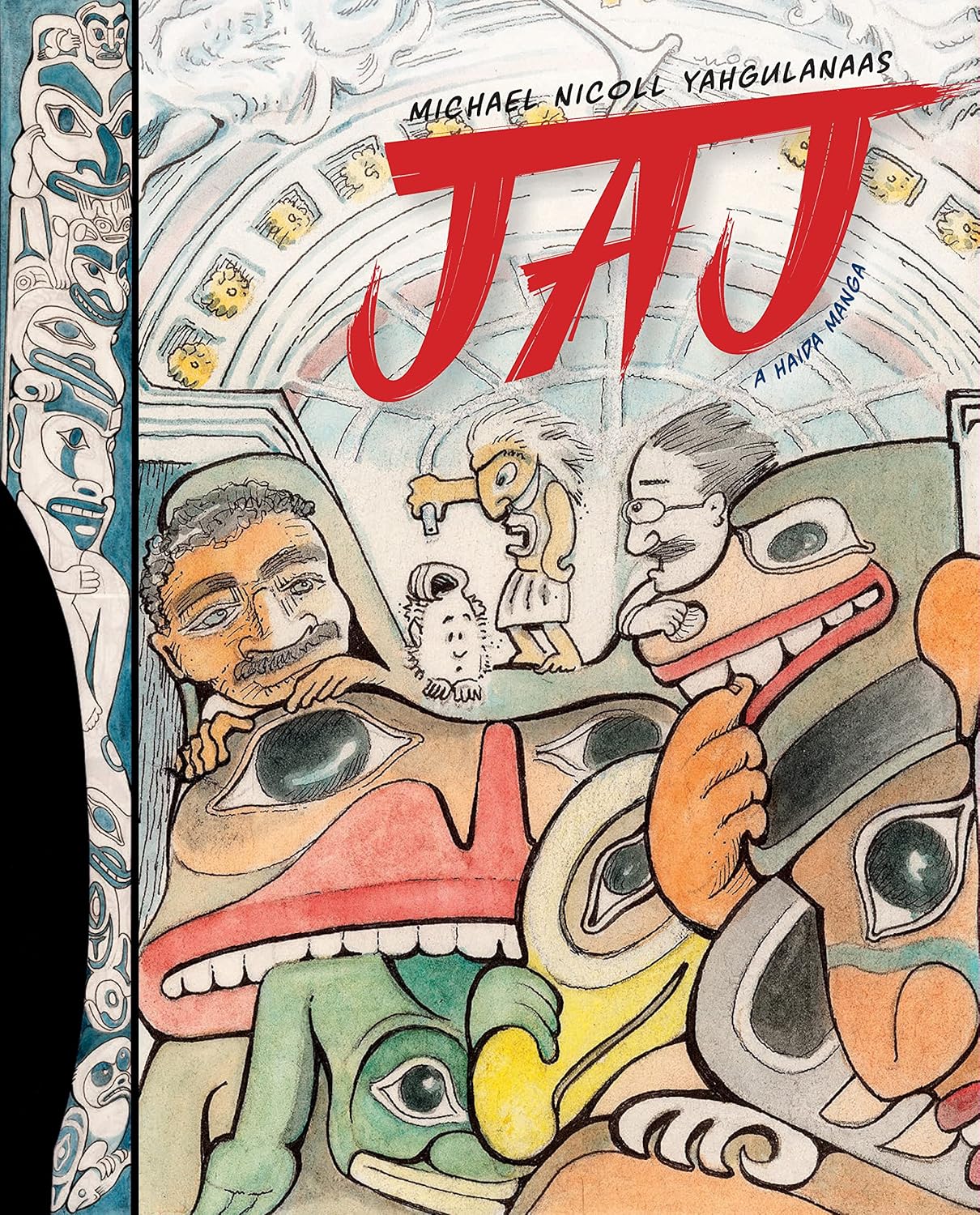 Artist, author, and activist Michael Nicoll Yahgulanaas began melding traditional North Pacific Indigenous iconography and modern Asian artistic influences in the late-1990s to create "Haida Manga." He returns to his spectacular hybrid artistry in JAJ (Douglas & McIntyre, $29.95) to brilliantly interrogate first contact between Europeans and the Indigenous people of his ancestral home, Canada's Haida Gwaii archipelago. JAJ has two meanings: "(1) one who decides (Hindi), (2) Johan Adrian Jacobsen." Both are haunting references: the deciders are invading Europeans, among them adventurer and ethnographer Jacobsen. Also remarkable is the ability to deconstruct and reassemble these pages into a stunning single image.
Artist, author, and activist Michael Nicoll Yahgulanaas began melding traditional North Pacific Indigenous iconography and modern Asian artistic influences in the late-1990s to create "Haida Manga." He returns to his spectacular hybrid artistry in JAJ (Douglas & McIntyre, $29.95) to brilliantly interrogate first contact between Europeans and the Indigenous people of his ancestral home, Canada's Haida Gwaii archipelago. JAJ has two meanings: "(1) one who decides (Hindi), (2) Johan Adrian Jacobsen." Both are haunting references: the deciders are invading Europeans, among them adventurer and ethnographer Jacobsen. Also remarkable is the ability to deconstruct and reassemble these pages into a stunning single image.

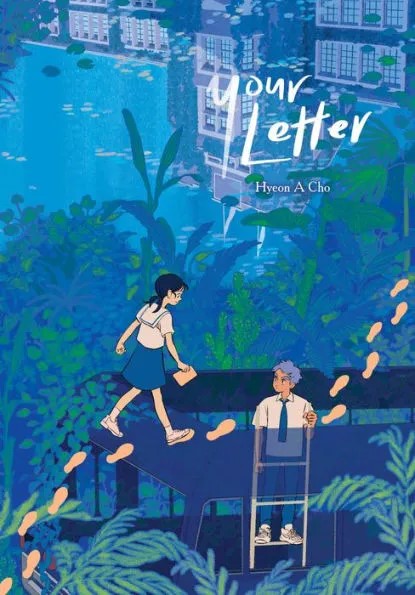 Hyeon A. Cho's magical manhwa Your Letter (Yen/Ize, $20), begins with a too-recognizable scene of intense bullying. When Sori "quit being a bystander," she became the next pariah. Her transfer to a new school is initially daunting until she discovers the first letter taped under her desk. The first leads to a second and more, inspiring wondrous adventures, vital friendships, and a serendipitous surprise at book's end. In full-color, vibrantly expressive panels, Cho enchantingly transforms that somber opening into joyful beginnings.
Hyeon A. Cho's magical manhwa Your Letter (Yen/Ize, $20), begins with a too-recognizable scene of intense bullying. When Sori "quit being a bystander," she became the next pariah. Her transfer to a new school is initially daunting until she discovers the first letter taped under her desk. The first leads to a second and more, inspiring wondrous adventures, vital friendships, and a serendipitous surprise at book's end. In full-color, vibrantly expressive panels, Cho enchantingly transforms that somber opening into joyful beginnings.
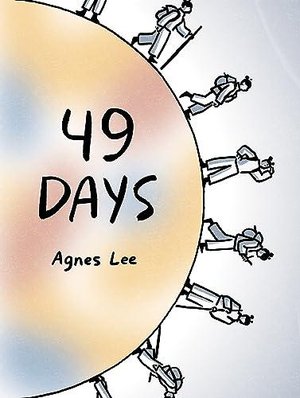 Finally, fans of the New York Times' "Metropolitan Diary" will likely recognize artist Agnes Lee's minimalist, often whimsical illustrations in her debut novel, 49 Days (Levine Querido, $18.99), an evocative, mystical creation with little text, overflowing with unsaid feelings. Lee begins with a wordless spread marked "Day 1" on the left, an empty beach on the right. A backpack-wearing girl appears in constant motion, checking her watch, occasionally cursing. Days pass. Blues overlaid on black-and-white panels get replaced with brown, signaling flashbacks to youthful memories; panels tinged in sienna reveal a parallel narrative of a family in mourning. Gently, nudgingly, Lee intertwines past, present, and future over 49 days. --Terry Hong
Finally, fans of the New York Times' "Metropolitan Diary" will likely recognize artist Agnes Lee's minimalist, often whimsical illustrations in her debut novel, 49 Days (Levine Querido, $18.99), an evocative, mystical creation with little text, overflowing with unsaid feelings. Lee begins with a wordless spread marked "Day 1" on the left, an empty beach on the right. A backpack-wearing girl appears in constant motion, checking her watch, occasionally cursing. Days pass. Blues overlaid on black-and-white panels get replaced with brown, signaling flashbacks to youthful memories; panels tinged in sienna reveal a parallel narrative of a family in mourning. Gently, nudgingly, Lee intertwines past, present, and future over 49 days. --Terry Hong
Book Candy
Book Candy
Open Culture examined "The Page That Changed Comics Forever: Discover the Innovative 1950s Comic Book That Almost Went Unpublished."
---
Three Bears and...? Mental Floss noted that the lead character didn't even appear in the earliest written versions of the fairy tale Goldilocks and the Three Bears.
---
Author tour: "Inside the home of New Zealand's greatest crime writer." (via the Spinoff)
Rediscover
Rediscover: Evan Wright
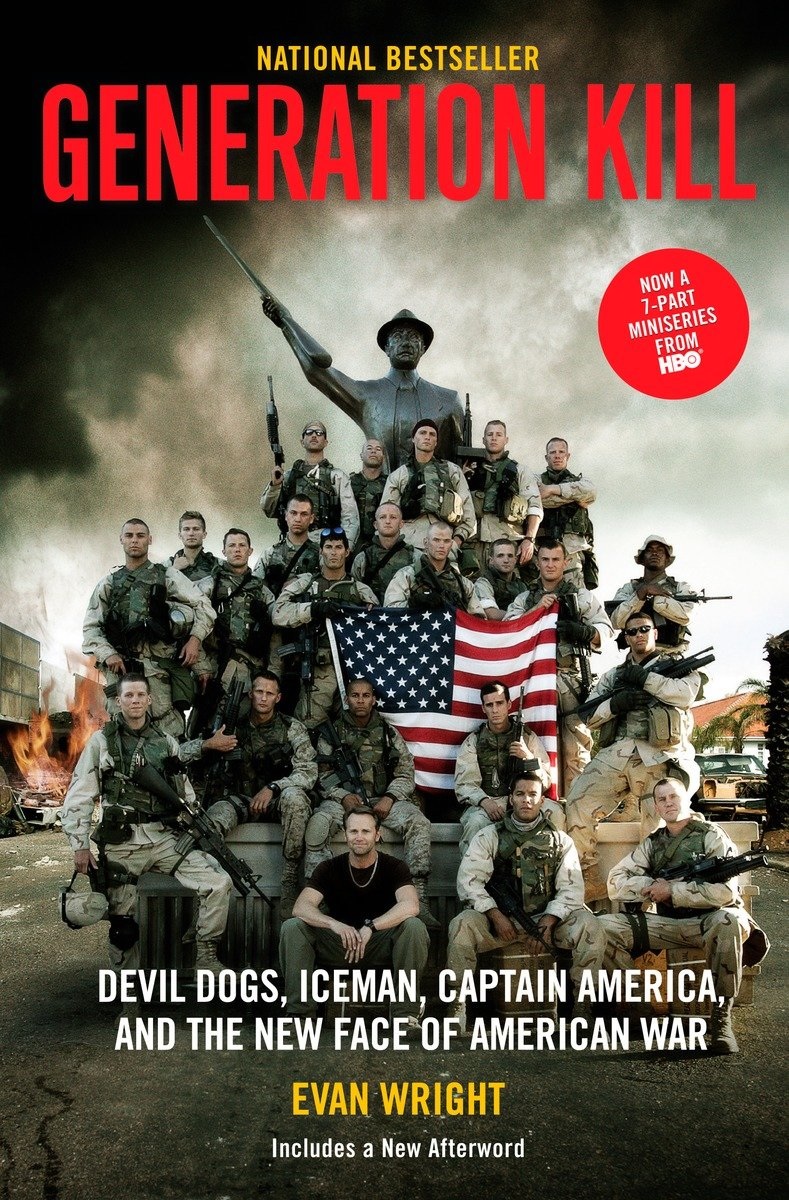 Evan Wright, "a modern-day gonzo journalist who embedded with an elite U.S. Marine battalion in Iraq for prizewinning articles that were published in Rolling Stone and grew into the book and HBO miniseries Generation Kill," died July 12 at age 59, the Washington Post reported. Wright wrote for several magazines including Time and Vanity Fair, but was perhaps best known for his contributions to Rolling Stone, the literary home beginning in the 1970s of Hunter S. Thompson.
Evan Wright, "a modern-day gonzo journalist who embedded with an elite U.S. Marine battalion in Iraq for prizewinning articles that were published in Rolling Stone and grew into the book and HBO miniseries Generation Kill," died July 12 at age 59, the Washington Post reported. Wright wrote for several magazines including Time and Vanity Fair, but was perhaps best known for his contributions to Rolling Stone, the literary home beginning in the 1970s of Hunter S. Thompson.
Wright, however, rejected the "gonzo" label. " 'Gonzo' speaks of writing that is more about the reporter than the subject," he wrote in Hella Nation: Looking for Happy Meals in Kandahar, Rocking the Side Pipe, Wingnut's War Against the Gap, and Other Adventures With the Totally Lost Tribes of America (2009). "With few exceptions, my intent has always been to focus on my subjects in all of their imperfect glory."
He was most celebrated as a war correspondent, embedding first with the U.S. military in Afghanistan and then, in 2003, with the Marine First Reconnaissance Battalion in Iraq. His writings from Iraq, a three-part series published in Rolling Stone as "The Killer Elite," received the 2004 National Magazine Award for reporting. Wright expanded his articles into the book Generation Kill: Devil Dogs, Iceman, Captain America and the New Face of American War (2004), which was later adapted in 2008 into an HBO miniseries the author co-wrote with David Simon and Ed Burns (The Wire).
Lt. Nathan Fick, who was featured prominently in Rolling Stone's "The Killer Elite" series, wrote in a tribute: "I knew Evan as a good and gentle guy in a place that was neither good nor gentle. He wasn't a Marine, but many of us who spent March and April 2003 alongside him have thought of Evan for the past two decades as one of us. Rest in peace, brother."
In a social media post, David Simon wrote: "We've lost a fine journalist and storyteller. Evan's contributions to the scripting and filming of Generation Kill were elemental. He was charming, funny and not a little bit feral, as many reporters are. So many moments writing in Baltimore and on set in Africa to remember."
Wright's other books include American Desperado: My Life--From Mafia Soldier to Cocaine Cowboy to Secret Government Asset (with Jon Roberts, 2011) and How to Get Away With Murder in America: Drug Lords, Dirty Pols, Obsessed Cops, and the Quiet Man Who Became the CIA's Master Killer (2012). Generation Kill is available in paperback from Putnam.
Read what writers are saying about their upcoming titles


